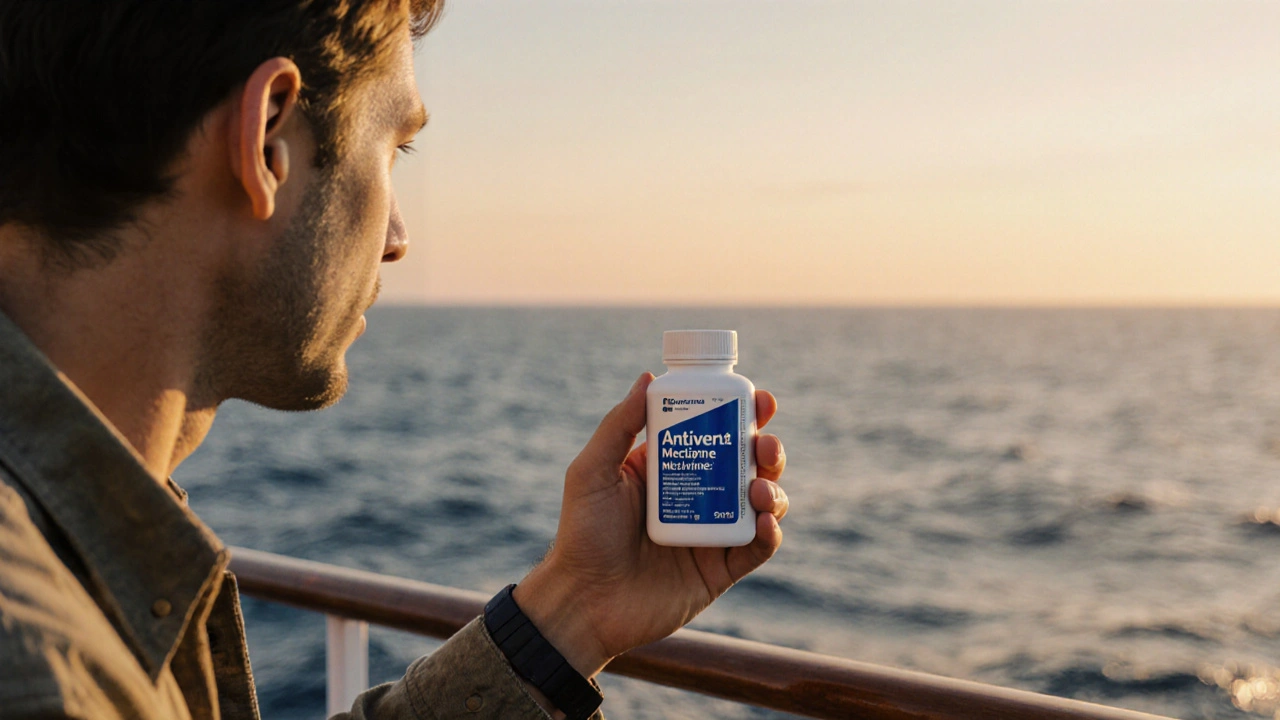Meclizine: Uses, Dosage, and Side Effects
Feeling dizzy on a boat, plane, or after a head turn? Meclizine is a common antihistamine that helps with motion sickness and certain kinds of vertigo. It calms the inner ear signals that trigger nausea and spinning, so many people find it useful for travel or temporary balance problems.
How to take meclizine
Meclizine is usually taken by mouth. For motion sickness, adults commonly take 25–50 mg about one hour before travel. If needed, repeat doses follow the product instructions or your doctor’s advice. For vertigo caused by inner-ear conditions, doctors often use doses in the 25–100 mg daily range, sometimes split into smaller doses.
The drug is available over the counter in many countries, but if your dizziness keeps happening, see a clinician before long-term use. For children, meclizine is typically used for ages 12 and up — check labels and ask a pediatrician for younger kids.
Side effects and precautions
Most people notice mild drowsiness first, so avoid driving or heavy machinery until you know how it affects you. Other common effects include dry mouth, blurred vision, constipation, and trouble urinating. These come from meclizine’s anticholinergic action.
Caution if you take other sedating drugs like benzodiazepines, opioids, strong sleep aids, or drink alcohol — combining them can increase sleepiness and breathing problems. Tell your doctor if you have glaucoma, enlarged prostate, or certain heart conditions; meclizine can make some of those issues worse.
Pregnant or breastfeeding? Talk with your healthcare provider. Some doctors may recommend avoiding routine use during pregnancy unless benefits clearly outweigh risks. If you notice fast heartbeat, severe rash, difficulty breathing, or extreme confusion, get emergency care — those can be signs of a serious reaction.
Meclizine is not the best option for everyone. Older adults can be more sensitive to confusion, falls, and urinary problems. If you’re already on multiple medications, ask a pharmacist to check for drug interactions.
Store meclizine at room temperature, away from heat and moisture, and keep it out of reach of children. Don’t use expired pills and don’t share your medication with others.
Practical tips: take it before symptoms start, avoid alcohol, and try non-drug measures too — sit facing forward in a vehicle, fix your gaze on the horizon, or use acupressure bands for motion sickness. If meclizine barely helps or side effects are strong, your doctor can suggest alternatives or check for another cause of dizziness.
Want specific advice? Bring a current list of medications and a short description of your dizziness (when it happens, how long it lasts, what makes it worse) to your next appointment. That makes it easier for your clinician to choose the right treatment and dose for you.

Antivert (Meclizine) vs Other Motion Sickness Drugs: A Comparison Guide
Compare Antivert (Meclizine) with popular motion sickness alternatives, covering efficacy, side effects, pricing, and best-use scenarios in a clear, cheat‑sheet style guide.
View More
Meclizine for Vertigo: How This Over-the-Counter Option Works
Feeling dizzy but unsure where to turn? Meclizine might just be the over-the-counter hero you've been seeking. This article unravels how Meclizine works its magic against vertigo and what you can expect when using it. Discover the science behind this medication and important tips for its effective use. You'll gain insight into the side effects too—because nothing should surprise you!
View More




